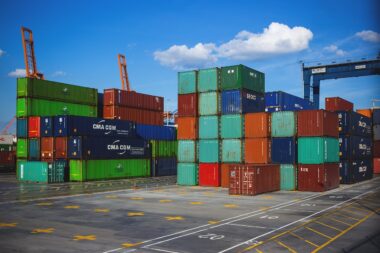The Effects of Trade Disputes on Economic Development
Trade disputes are a significant aspect of international economics and can considerably affect the economic development of nations involved. When countries engage in trade disputes, they often impose tariffs or quotas, aiming to protect local industries, which leads to a myriad of consequences. One immediate effect is the increase in the prices of imported goods; higher tariffs typically lead to higher prices for consumers. Such price increases can reduce consumption levels as consumers adjust their spending. Additionally, the companies dependent on imported materials may face increased costs, potentially leading to a slowdown in production. In turn, this can result in job losses or stagnation in employment opportunities. Beyond domestic markets, these disputes may lead to retaliatory measures from other nations, further complicating trade relationships. Overall, trade disputes disrupt normal economic activities and can lead to a decline in overall economic growth. Nations must therefore navigate these disputes carefully to mitigate adverse impacts on their economies and ensure sustained growth. Ultimately, a proactive approach to dispute resolution is essential for fostering beneficial trade practices that encourage economic development.
Direct Impacts on Trade Relationships
Economic development is closely tied to the nature of international trade relationships. When disputes arise, countries may sever ties or impose sanctions, creating a ripple effect throughout global markets. This can lead to disruptions in supply chains that have been built over years or decades. Companies reliant on stable international supply chains could face significant operational challenges, ultimately leading to increased production costs and lower profit margins. Furthermore, as tariffs increase, businesses may seek domestic substitutes, but the lack of alternative goods can create shortages. In many industries, technology transfers and foreign investments play a crucial role in economic progress, which can also be jeopardized by trade conflicts. For developing nations, the loss of access to international markets can stall growth, denying them opportunities to integrate into the global economy. This response to trade disputes can lead to increased economic isolation, stunting technological advancements and infrastructure development. Therefore, maintaining healthy trade relationships is paramount to fostering an environment conducive to economic growth and development, ensuring that nations can benefit from their participation in the global market.
Trade disputes can also have profound impacts on foreign direct investment (FDI). When nations engage in trade hostilities, the perceived risk increases, which may deter foreign investors. Investors typically seek stable environments for investment. The uncertainty that arises from volatile trade relations creates hesitance. Many businesses assess risks associated with investing in countries embroiled in trade disputes. Thus, FDI, which is often vital for economic development, may decrease significantly during these periods. Companies might decide to redirect investments to more stable countries, leading to lost opportunities for local economies. Furthermore, nations may face punitive measures from international trade organizations or other governments in response to their dispute strategies. For the affected countries, this could mean challenges in accessing new technologies and markets, as well as potential sanctions. Such occurrences could render domestic industries less competitive compared to their international counterparts. Consequently, reliance on domestic resources might increase, but without foreign investment, the development of innovative products and technologies can stagnate. Hence, the relationship between trade disputes and FDI is crucial for understanding their full effects on economic growth.
Another area where trade disputes influence economic development is innovation and productivity. Trade facilitates knowledge sharing and technological advancements, which are critical for improving overall productivity. Disrupting these channels through disputes inhibits the flow of information and ideas. Consequently, local companies may be less motivated to invest in research and development. Without innovative capacities, industries struggle to improve competitiveness and adapt to changing consumer demands. Furthermore, diminished competition from international markets could lead to complacency among local firms, resulting in stagnation of productivity growth. It is also essential to recognize that trade agreements usually bundle economic cooperation with innovation partnerships. Hence, the breakdown of these accords due to disputes means companies miss opportunities to collaborate or access new technologies. The slowdown in innovation can have long-term effects, causing domestic industries to lag behind global developments. Therefore, fostering peaceful trade relations is not only crucial for maintaining current economic performance but also for ensuring future growth through innovation and enhanced productivity in a competitive landscape, which is vital for sustained economic development.
Long-Term Economic Consequences
The long-term economic consequences of trade disputes can be quite damaging. Countries often find themselves in prolonged periods of reduced economic activity if trade relations do not improve. Protracted disputes can lead to an environment of unpredictability, where businesses refrain from making necessary long-term investments. This stagnation can deteriorate economic growth prospects over time, creating a vicious cycle that is hard to break. Furthermore, the impacts of such disputes extend to social dimensions, where economic stagnation can lead to increased rates of unemployment and poverty. These socioeconomic challenges can foster unrest and societal discontent, further complicating recovery efforts. Moreover, lower economic growth may result in reduced government revenues, limiting the ability to invest in crucial public services such as education and healthcare. Countries relying on trade for their economic well-being need to recognize the pivotal role that stable trade relations play in promoting a livable and prosperous society. Ultimately, navigating towards amicable resolutions in trade disputes is essential, as the repercussions can linger; thus, strategies aimed at conflict resolution and cooperation are paramount.
A significant area directly shaped by trade disputes is the agricultural sector. Many nations rely heavily on agricultural exports, and disputes can have immediate consequences for farmers and food producers. For example, when tariffs are imposed, agricultural exports often become less competitive, leading to reduced sales overseas. Farmers may struggle to find new markets for their products while international competitors may seize opportunities. Additionally, retaliatory tariffs can further disadvantage farmers in export markets. This impacts the agricultural ecosystem as less income affects production decisions and investment in advancements. Furthermore, reduced trade can lead to food price fluctuations, affecting food security domestically and globally. For developing countries, reliance on agriculture means that trade disputes amplify the risk of economic instability. Communities may face hardships as income loss translates into diminished livelihoods and quality of life. Policymakers must recognize the critical role of trade in supporting agricultural development and must seek constructive resolutions to trade disputes, as doing so will help secure the livelihoods of millions employed within the agricultural sector, thereby promoting economic stability.
Trade disputes can fundamentally alter consumer behavior in affected markets. When consumers are faced with higher prices due to tariffs, their purchasing power diminishes, which often leads to a reconsideration of spending habits. Many tend to prioritize essential goods over discretionary items, effectively altering demand within the economy. This can result in slower economic growth, as businesses face reduced revenues and are forced to adapt to changing consumption patterns. Additionally, trade disputes can create instabilities around product availability, contributing to scarcity of certain goods. This uncertainty can lead consumers to substitute with local offerings or entirely different products. As a consequence, consumers may become less willing to pay premium prices, prompting businesses to adjust their pricing structures. Over time, these shifts can significantly reshape market landscapes, creating opportunities for local brands while challenging established foreign ones. The transition may transition into a long-term shift, impacting the competitive dynamics of the market. Thus, understanding this consumer behavior alteration is vital for businesses and policymakers planning strategies amid trade disputes, ensuring alignment to changing consumer needs that can stabilize economic development.





